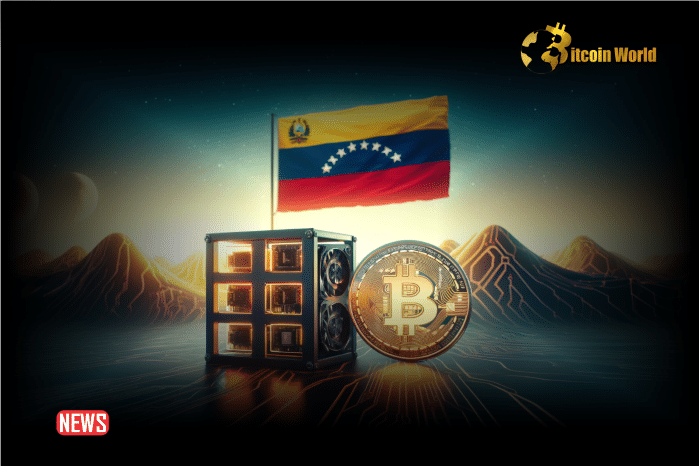- Venezuela has banned all crypto mining activities in the country as it could no longer ignore the impact of crypto mining on the nation’s energy resources.
The Venezuelan national power grid is under a lot of stress due to increasing demands.
The government has taken action against high-consumption activities like crypto mining to alleviate pressure on the power grid.
The government has banned all crypto mining to regulate the country’s power grid.
Crypto mining emerged as a beacon of hope for many grappling with Venezuela’s skyrocketing inflation and economic instability. With electricity costs among the lowest in the world, crypto mining offered a lifeline to citizens and businesses seeking financial refuge.
Yet, as the allure of crypto mining in the country grew and more Venezuelans turned to digital assets, the strain on the country’s power grid became palpable.
Faced with this dilemma, the government could no longer ignore the impact on the nation’s energy resources, prompting an unfortunate but much-needed response.
See Also: Russian Court Jails Finiko Crypto Scam Executive For Three Years
Venezuela Bans Crypto Mining
Amid Venezuela’s struggle with energy shortages and infrastructural challenges, the Venezuelan National Power Ministry announced plans to disconnect all Bitcoin and crypto mining farms from the national grid.
The agency explained that it aimed to regulate excessive energy consumption by banning all crypto mining farms in the country from the national grid.
Spearheading this initiative, Rafael Lacava, governor of Carabobo, led a series of decisive actions resulting in the seizure of over 11,000 ASICs and the shutdown of numerous mining farms.
Governor Lacava has also prompted public collaboration in detecting illegal crypto mining operations in the country, encouraging citizens to report any unlawful activities.
Lacava emphasized that such measures were essential to stabilize the country’s power grid and offer reliable service to its citizens, especially since the country has been experiencing recurring blackouts since 2019, which have had far-reaching implications for overall economic activity.
While the authorities have yet to clarify the permanence of these actions, Governor Lacava warned that the national grid would disconnect more bitcoin farms and undertake other measures, including announcing a national executive order to reduce the energy consumption of state agencies in the next few days.
In March 2023, Venezuela’s energy supplier shut down crypto mining facilities nationwide as part of corruption investigations involving the country’s state oil company.
A recent crackdown in Venezuela involved the confiscation of 2,000 crypto mining ASIC in Maracay as part of an anti-corruption initiative.
Crypto mining emerged as a saving grace for countless Venezuelans grappling with soaring inflation and instability. Yet, this lifeline came at a cost—frequent blackouts and energy shortages.
While the ban aims to restore stability to Venezuela’s energy infrastructure, it poses a dilemma for those dependent on crypto mining for their livelihoods.
Disclaimer: The information provided is not trading advice. Bitcoinworld.co.in holds no liability for any investments made based on the information provided on this page. We strongly recommend independent research and/or consultation with a qualified professional before making any investment decisions.
#Binance #WRITE2EARN
The post Venezuela Banned All Crypto Mining Activities To Prevent Grid Overload appeared first on BitcoinWorld.



